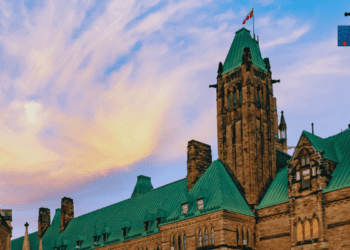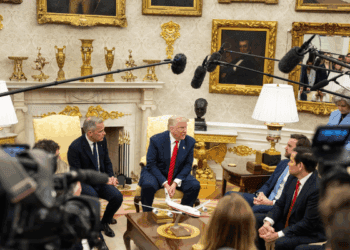 The most recent dispute over the South China Sea is a challenge not merely to Canada but to all liberal-democratic societies that prize the rule of law and the use of international institutions, rather than brute force, to settle disputes between nations, writes Brian Lee Crowley.
The most recent dispute over the South China Sea is a challenge not merely to Canada but to all liberal-democratic societies that prize the rule of law and the use of international institutions, rather than brute force, to settle disputes between nations, writes Brian Lee Crowley.
By Brian Lee Crowley, July 15, 2016
China has just thrown down the gauntlet to Canada, again.
The last time was when the visiting Chinese foreign minister, Wang Yi, gave a public dressing down to a Canadian journalist whose offence was doing her job, while Canada’s Global Affairs Minister Stephane Dion looked haplessly on. When the government belatedly made a timorous comment about the incident, it sounded more like a spin doctor’s communications advice to the Chinese than a robust defence of Canadians’ rights.
With their hallmark petulance, the unrepentant Chinese have apparently responded to this barely noticeable tut-tutting by harassing Canadians of Chinese origin travelling in China. China’s none-too-subtle message: we will act as we please and you will hold your tongue or there will be unpleasant consequences.
China has just thrown down the gauntlet to Canada, again.
This week’s events are on a much bigger scale, throwing out a challenge not merely to Canada but to all liberal-democratic societies that prize the rule of law and the use of international institutions, rather than brute force, to settle disputes between nations.
The setting for this tale is the South China Sea. For most Canadians that sounds like some distant romantic stretch of saltwater in a Joseph Conrad novel. Instead it is one of the most heavily used commercial waterways in the world, disgorging Asia’s manufacturing might into the world while keeping its burgeoning economies supplied with raw materials and energy. About four trillion dollars’ worth of trade flows through this sea.
China long ago understood that control of the South China Sea would be in the 21st century what control of Gibraltar and the Suez Canal were in the late 19th. The principal difference is that the British were free traders and believed in the freedom of the seas, whereas Chinese control of the South China Sea would put at risk the prosperity and security of the region’s many littoral nations. Wherever China has gained the upper hand in relations with other states it has used that power to assert their dominance, as when they suddenly declared an export ban on certain rare earth minerals widely used in electronics, successfully damaging the Japanese economy.
On the flimsiest and most transparently contrived pretexts, China has claimed virtually all of the South China Sea, flouting all the rules that have been established through international law and agreements to establish maritime boundaries and economic zones. Of course there are many overlapping claims to territory in this Sea, but only China has set out to create facts on the ground that will render useless the far more meritorious claims of nations like Vietnam and the Philippines.
On past form Beijing will get another pass and its bad behaviour will once again be rewarded. So don’t be surprised when the bullying continues.
In particular China has simply shown up at various uninhabitable atolls, reefs and rocky outcroppings, unceremoniously declared them to be Chinese, and then proceeded to dredge the surrounding waters to build up artificial islands, at least some of which are clearly intended to host military facilities such as runways. Beijing has bent over backwards to avoid having their claims tested in legitimate international forums, suggesting to aggrieved littoral countries that they should negotiate bilaterally with China. So far China’s main negotiating tactic seems to be the gunboat.
To their credit, the Philippines called Beijing’s bluff and took their claims to the Permanent Court of Arbitration in The Hague, a body created by the international community to arbitrate precisely such disputes according to international law. The PCA ruled on July 12th what almost all disinterested observers already knew: that China’s claims were farfetched, with no basis in law, and that Beijing should cease its activities in the Sea.
China angrily rejects the ruling. Canada and the rest of the world community now must decide what to do: stand up for the rule of law or keep quiet in exchange for a piece of the economic action in China. On past form Beijing will get another pass and its bad behaviour will once again be rewarded. So don’t be surprised when the bullying continues.
Brian Lee Crowley (twitter.com/brianleecrowley) is the Managing Director of the Macdonald-Laurier Institute, an independent non-partisan public policy think tank in Ottawa: www.macdonaldlaurier.ca.




